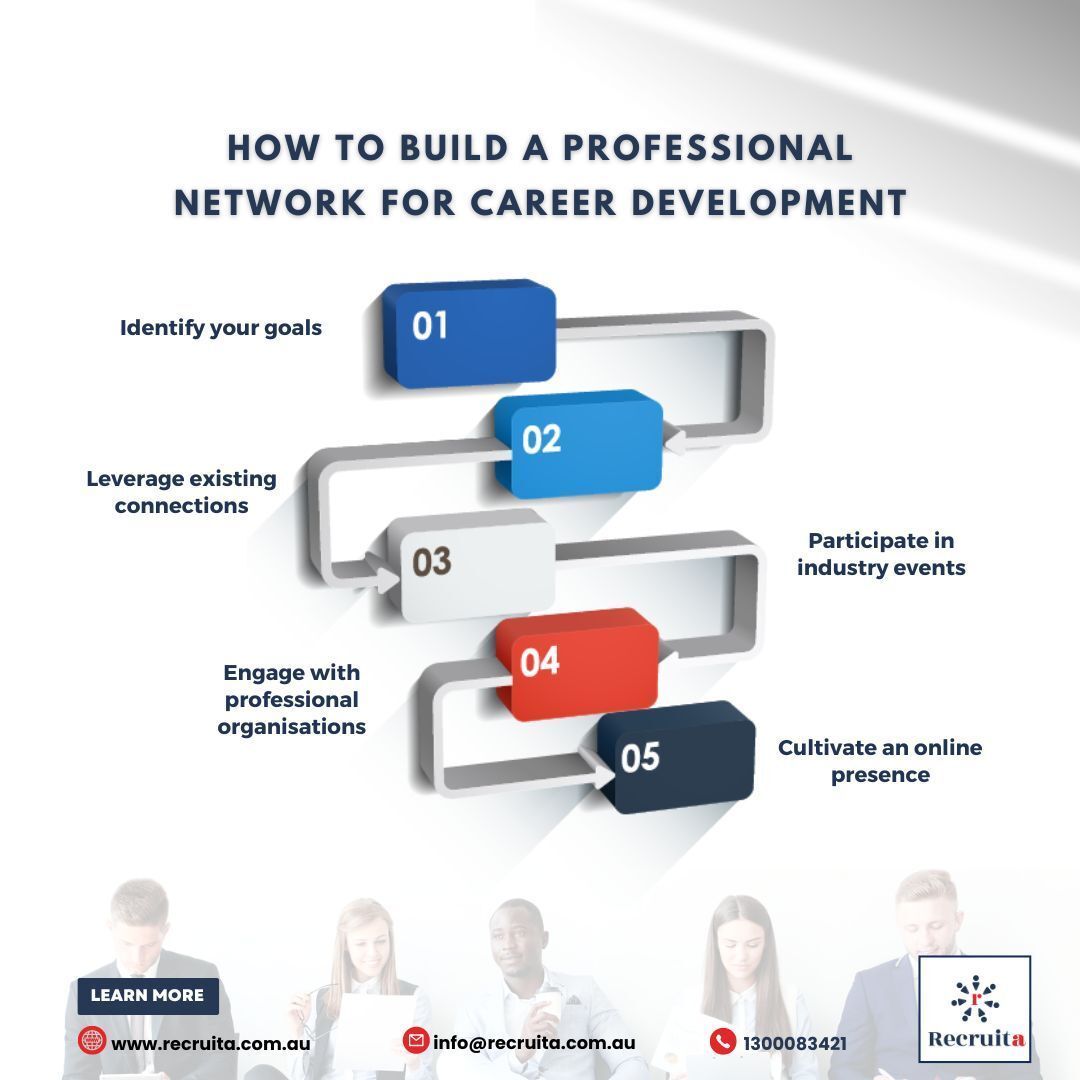Build real self-confidence: These tips get beneath the surface
Self-confidence is easy to spot but hard to develop. Everyone wants to be self-confident. But many don't know how to start building it. It takes effort and a willingness to move outside your comfort zone to gain confidence. You build it piece by piece, starting with noticing what you already have and appreciating your wins, no matter how small. It doesn’t happen overnight.
You may not realize it, but people want to see you succeed. And more than ever, there are resources to help you become the most authentically confident version of yourself. We’ll discuss what self-confidence is, how to build confidence, and tips for improving your self-improvement journey.
Understand Yourself Better: Big 5 Personality Test
Learn how to leverage your natural strengths to determine your next steps and meet your goals faster.
What is self-confidence, anyway?
Confidence is hard to define, but self-confidence generally refers to a sense of comfort with yourself and your instincts and a belief that you can trust your own abilities, knowledge, and judgment.
Confident people welcome new challenges because they know that they are reasonably up to the challenge. And their self-worth doesn’t hinge on the outcome. They'll try their best and are motivated to pursue their goals without overthinking or internalizing too much.
They approach things in life without uncertainty and nerves.
Rather than being judgmental or hostile toward other people's success, confident people celebrate others and feel genuine happiness for them rather than envy or comparison. They are inspired to learn what they can about how others succeed. They don’t rationalize others’ successes or their own failures.
They may not be positive all the time, but they do keep a growth mindset. When they make a mistake, they usually can see the humor and are more likely to respond with laughter and easily overcome insecurity or shame.
People can be confident in specific areas of their lives, too. Some are more confident in their athletic abilities than their cooking expertise. Others could be confronted with a lack of confidence in certain academic subjects.
The areas where people feel self-confident often represent what they’re most passionate about in life.
What are the benefits of developing self-confidence?
Building self-confidence promotes personal growth that positively influences both your professional and personal life. Here are four benefits that self-confidence can bring:
Healthier relationships
Self-confidence is infectious. It makes those around you feel more confident and comfortable when communicating with you.
Self-confidence is about appreciating and trusting yourself. When you know and accept your strengths and weaknesses, you can better appreciate and support the people around you.
While confidence is great for loving others, it also helps you show love to yourself. Your confidence could encourage you to leave a toxic relationship that hurts your well-being or to take up a new hobby that’s just for you. In the end, you're improving your wellness and practicing self-care.
More professional success
With any job or task you must tackle, your self-confidence will hype you up for the big moments. Self-confidence flexes your sense of self-efficacy, which is the mark of both a good leader and a worker.
Self-efficacy impacts your choices, perseverance during unexpected challenges, and trust in your knowledge and intuition. You won't waste time going back and forth worrying over your abilities or what others think of you. Your self-confidence will project strength to those around you, who may perceive the ease with which you perform.
Easier transitions
Life is full of new beginnings, and they aren’t as daunting when you're confident in yourself. You can better believe in your abilities when testing your limits and trying new things, which will help you discover new things about yourself.
Confident people also make life decisions more easily. Their confidence spills over into their decision-making process, making new adventures exciting, not scary.
Greater resilience
Even confident people can't avoid mistakes or failure. It's part of life, and no matter how much your confidence encourages you, you aren't immune. Instead, your self-confidence will help you accept responsibility and understand that you're constantly learning throughout life, an essential part of self-improvement.
Self-confidence doesn’t come from one action and persists despite the bad moments. After acknowledging that you make mistakes, your self-confidence will help you bounce back faster. You’ll know you've done your best and can view it as a learning opportunity.
3 downsides of excessive self-confidence
As the adage goes, “Everything in moderation.” An excessive level of confidence could create the following problems:
Missed opportunities
You may turn down projects that could build connections with colleagues, co-workers, or managers because the work seems too simple or beneath your skill level. You might miss out on skill-enhancing opportunities because you don’t want to admit you also have room to grow.
Burnout
You may feel so self-assured in your ability to take on numerous tasks that you spread yourself too thin and make a habit of overworking. When you overload your schedule, you’ll likely interrupt your workflow, burn yourself out, or deplete the quality of your finished work, which could cause problems at work.
Relationship issues
You may lack self-awareness and the emotional intelligence to read cues from those around you, like body language or verbal cues, making you appear arrogant or conceited. Too much self-confidence could distract you from appreciating the value of your partner or colleagues.
Are self-confidence and self-esteem the same?
We often use self-confidence and self-esteem interchangeably because they’re closely related. Self-confidence is most genuine and durable when it derives from healthy self-esteem. While they share similarities, there are distinct differences between the two.
Self-confidence is outward-facing. It's what you put out to the world and what people around you see. Self-esteem is inward-facing and only sometimes noticeable from the outside. Your confidence can come from knowledge and experience, whereas self-esteem is more about knowing yourself and valuing your self-worth.
Low self-esteem or low self-confidence can cause self-doubt and unhealthy self-talk and negatively impact your mental health, well-being, and performance.
Our increasingly virtual world also affects our self-esteem. The image you present to the world online demonstrates your self-confidence, whereas the way you feel about yourself inwardly is a more accurate reflection of your self-esteem.
When the image and the reality don’t align, this can adversely affect both self-confidence and self-esteem, especially when comparing yourself to what others post on social media.
Often, people tend to rely on their self-confidence for happiness in life. Instead of working on their self-esteem, which is about knowing and loving yourself, strengths and weaknesses, and developing an internal sense of worth, people work on their projected image and how others perceive them.
This focus on projected confidence in order to seem successful can backfire without also developing self-esteem. People may not realize you have low self-esteem, but eventually, those you connect with will see through your self-confidence.
It’s crucial to note that self-confidence won’t endure without healthy self-esteem. It’ll be shaken when you find yourself in unfamiliar terrain. But with both, you’ll thrive. When your self-esteem is steady and your well-being is good, your self-confidence shines brighter.
If you love and value yourself, you’ll embrace your strengths and weaknesses in any situation, and your self-esteem will motivate you to be a more confident person.
How to build confidence
Everyone can learn how to be more confident in different, powerful ways. What may work for some may not work for all, and that's okay. Remember that you can always start small with little steps before taking bold strides.
Here are eleven ways to help build self-confidence:
- Stop comparing yourself to others
- Celebrate and reflect on your wins
- Embrace your failures and view them as learning opportunities
- Step out of your comfort zone
- Treat yourself with respect
- Have positive self-talk or affirmation sessions
- Track your progress
- Pursue passions that make you happy
- Allow yourself to be curious
- Think about your big goals
- Stand up for yourself
- Read books, follow people on social media, or listen to podcasts that encourage self-confidence
What are some tips to be more confident?
Building your confidence takes time and involves plenty of ups and downs. As you put in the work toward being confident, here are a few tips to keep in mind:
Be proud of yourself
Hard work deserves to be recognized. Maybe one of the ways that you're becoming more confident is by making more eye contact with people.
You should also celebrate your smallest victories however you'd like. If a big bowl of ice cream will do that for you, go for it. As you track your progress, make sure to think back to where you started. Think about how that version of you would be proud of where you are today.
Don't be afraid to open up
It can be scary to be vulnerable with new people and within your surroundings. But as you're learning new things and stepping outside of your comfort zone, don't be afraid to let yourself open up. Be present with where you are and what you're doing. As you grow, you can acknowledge your fear and worries, but don't let that prevent you from exposing yourself to new things.
Be specific
You have to hone in on yourself to figure out what aspects you want to be more confident in. Where do you lack confidence? Where are you super confident? Identifying these aspects will help you be specific with your goals.
Once you have a plan, you won't feel as overwhelmed. Discover what would give you confidence and start making purposeful actions towards obtaining it.
Go forth with confidence
Even though self-confidence comes from within, your community can help you build it. Reach out to friends and family for words of affirmation and encouragement to boost your self-esteem.
You can also ask someone you trust to act as an accountability partner. They’ll point out when you’re being self-defeating and check in on your progress regarding confidence-oriented goals.
And when you start meeting those goals, you’ll better understand how to build the confidence you need to be a better version of yourself.
Source: https://www.betterup.com/blog/how-to-build-confidence



